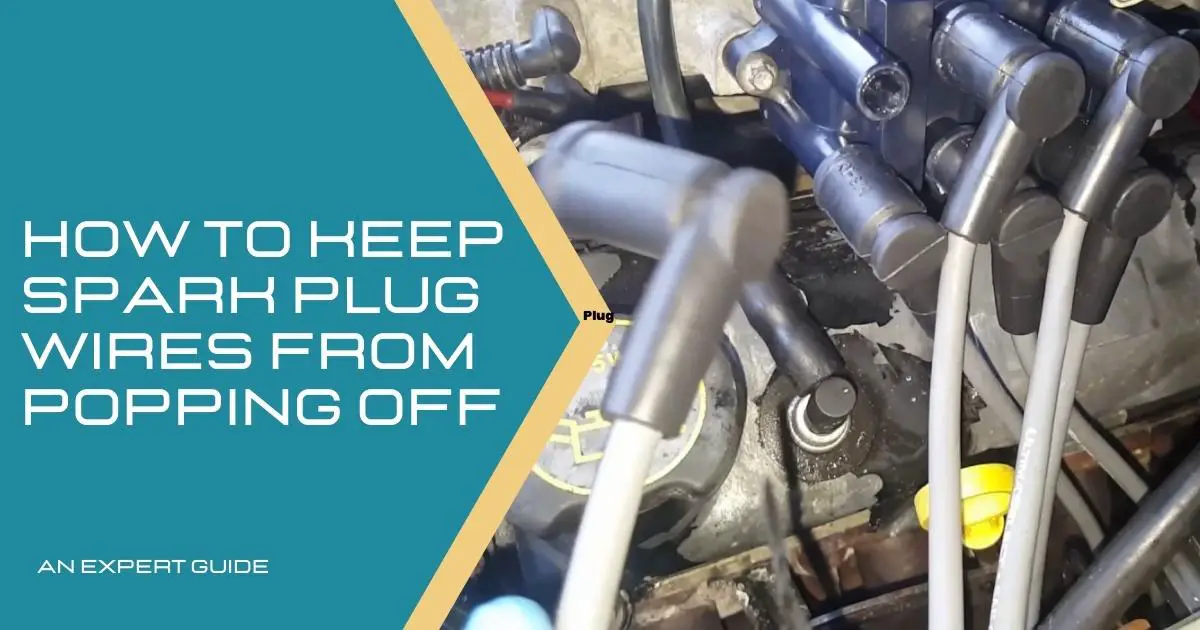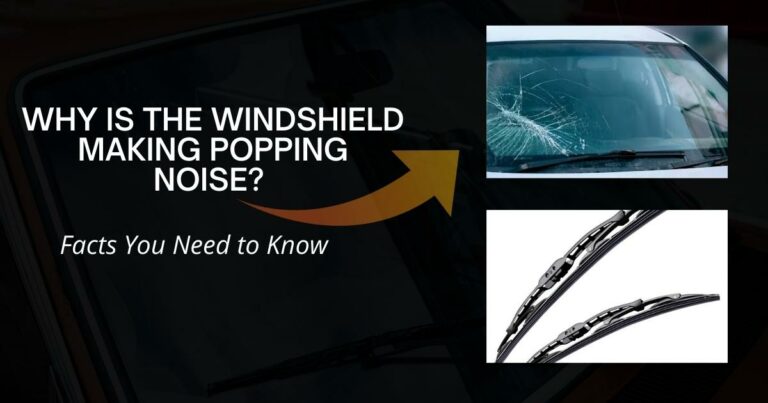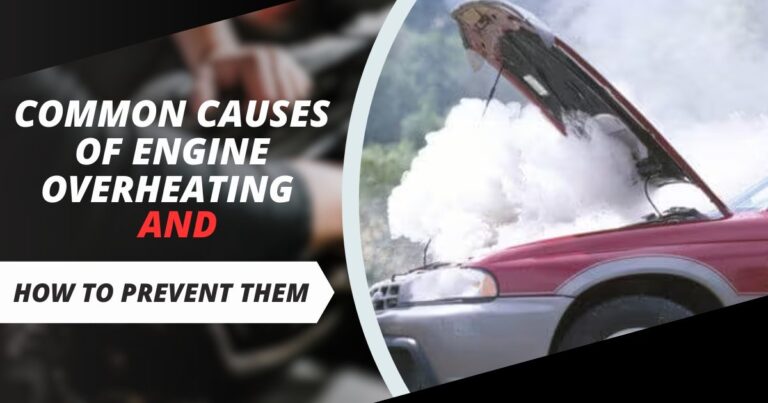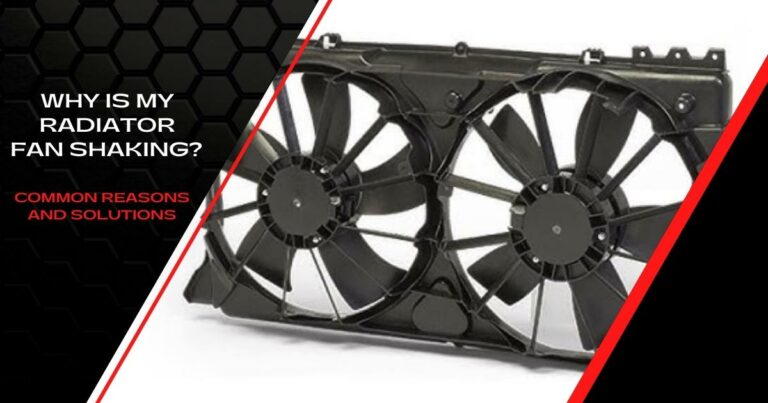How to Keep Spark Plug Wires from Popping Off | An Expert Guide
Spark plug wires, also known as high-tension leads, serve as essential components in any internal combustion engine. The primary function of these wires is to carry high-voltage electrical current from the distributor to the spark plugs located in the engine cylinders. This initiates the spark required to ignite the air-fuel mixture, thereby setting the combustion process in action.
Properly functioning spark plug wires are crucial for maintaining a smoothly running and efficient engine. Any issues with these wires such as them popping off or becoming loose, can impact the ignition process and the engine’s operation in general.
Why Does My Spark Plug Wires Keep Popping Off?
A motorist on a car forum shared their experience, saying, “I drive a 2000 Mitsubishi Eclipse with the V6 engine. I’m having an issue with the spark plug wire on cylinder #5 repeatedly coming loose from the spark plug. The wire seems to fit snugly into the spark plug, but it keeps disconnecting every five minutes of driving. I’ve tried replacing the spark plug, but the problem persists. Any insights on what might be causing this? Thanks in advance.”
If you, like this motorist, often find yourself dealing with the issue of spark plug wires occasionally popping off, then you’re not alone. This problem can disrupt your driving experience, which can be quite frustrating. In the following section, we will explore the common causes of spark plug wires popping off and provide practical tips to help you maintain a smoother and more trouble-free ride.

Reasons Why Spark Plug Wire Keeps Popping Off
Weak or Damaged Retention Clips
A loose or improper connection within the spark plug system can have a significant impact on engine performance. When the spark plug wires are not fastened securely to the spark plug, they are often prone to popping off during engine operation.
Spark plug wires typically have retention clips at both ends to secure them in place. If these clips are weak, damaged, or improperly engaged, they may not hold the spark plug wires securely, and as a result, they might pop off.
Corroded Threads
Faulty spark plugs can develop corrosion or rust on their threads due to exposure to harsh weather conditions. This corrosion can make it difficult to thread the spark plug into the cylinder head properly. The inability to securely thread the spark plug into the cylinder head makes it more prone to loosening over time. Engine vibrations and temperature fluctuations can exacerbate this problem further, which might cause the spark plug wires to pop off or detach from their socket.
Damaged Gasket
The gasket, also known as the spark plug washer, plays a crucial role in forming a secure seal within the combustion chamber. When the gasket becomes damaged, worn, or missing, it compromises its ability to create an effective seal within the combustion chamber. As a result, it develops an opening around the spark plug where combustion gases can escape.
As combustion gases escape, pressure can build up within the combustion chamber because the gases are not contained as they should be. This imbalance can affect the normal operation of the engine and may lead to issues such as misfires, decreased engine performance, and damage.
The pressure buildup within the combustion chamber can also affect the spark plug and its attachments. In some cases, this pressure can contribute to the spark plug wire coming loose from the spark plug or even the spark plug itself popping off from its socket.
Heat-Related Issues
A faulty spark plug can cause various issues related to combustion efficiency and engine performance. For instance, if a spark plug is not firing properly, it can lead to incomplete combustion, which may generate excess heat. This heat can affect the spark plug’s ability to remain securely fastened thereby making it pop off.
The combination of heat stress and the abnormal combustion process might affect the spark plug’s ability to remain securely fastened in the cylinder head. This can increase the risk of the spark plug wires coming loose over time.
Carbon Buildup
Running an engine with a rich fuel mixture or having an oil leak often leads to incomplete combustion. This process leaves behind unburned fuel and oil residues, which accumulate on the spark plug’s electrodes and insulator. Over time, this carbon buildup coats the spark plug, which affects its performance.
The presence of carbon deposits on the spark plug can also disrupt its ability to produce a strong and consistent spark for ignition. This, in turn, compromises its retention in the cylinder head, making it more prone to coming loose and popping off.
Vibration and Engine Movement
Excess vibrations and engine movement can gradually cause spark plug wires to loosen. This is because the constant mechanical vibrations generated by the engine’s operation lead to a gradual shift in the position of the spark plug wires.
As these wires become loose, they may not maintain a secure connection with the spark plugs and other ignition components. This can result in misfires, reduced engine performance, and, in some cases, the risk of the spark plug wires eventually disconnecting.
Improper Spark Plug Gap
The spark plug gap refers to the precise distance between the center electrode and the ground electrode of a spark plug. If the gap is too large or too small, it can lead to misfires in the engine’s cylinders. The misfires create irregular pressure changes in the combustion chamber, which can make the spark plug wires pop off.
Insufficient Boot Lubrication
Lack of proper lubrication increases friction between the spark plug boot and the spark plug. This creates friction-induced resistance, which can result in the spark plug wires loosening or ultimately disconnecting from the spark plug. Equally important, the weakened connection between the boot and the spark plug can also make it easier for the spark plug wires to pop off unexpectedly.
How to Keep Spark Plug Wires from Popping Off
Inspect Spark Plug Wires
Regularly check the condition of your spark plug wires to maintain a reliable ignition system. Look for visible signs of wear, damage, or cracking in the wires. If you detect any of these issues, it’s essential to replace the affected wires promptly. Failing to do so can lead to detachment and misfires, which might cause engine performance problems.
Proper Installation
When installing spark plug wires, it’s essential to ensure they are correctly and securely connected to both the spark plug and the ignition coil. Use a twisting motion to ensure that the wires’ terminals are properly seated on the spark plug or ignition coil.
When connecting spark plug wires, follow the manufacturer’s torque specifications. Over-tightening can damage the wires or the spark plug, and in turn, lead to detachment. You may also want to check for a snug fit, and make sure there are no loose or disconnected wires.
Check Spark Plug Gap
Make sure the spark plugs are correctly gapped to the manufacturer’s specifications. An improper gap can lead to misfires, which can, in turn, stress the wire connections.
Proper Insulation
Another step you can take to prevent spark plug wires from experiencing performance issues or detachment is to ensure they have adequate insulation. Without proper spark plug wire insulation, extreme temperatures and exposure to elements can degrade the wires’ performance and lead to detachment.
Use Dielectric Grease
Apply dielectric grease to the inside of the spark plug boots to reduce friction and help the boots stay in place. The grease provides an extra layer of protection which not only prolongs the lifespan of your spark plug wires but also promotes consistent engine performance while reducing the risk of detachment.
Consider Cable Retainers
In some cases, your vehicle can benefit from the use of cable retainers or clips designed to secure the spark plug wires in place. These retainers serve as an extra layer of support, which reduces the risk of the wires popping off. Incorporating these retainers helps enhance the overall stability of the ignition system, particularly in high-vibration or high-stress engine environments.
Protect Against Vibrations-
As we’ve mentioned excessive engine vibrations or movement can place stress on wire connections, thereby leading to detachment. To safeguard against this issue, it’s crucial to address any underlying factors that may be causing these vibrations. This can include inspecting and securing engine mounts, ensuring that the engine is properly balanced, and replacing worn or damaged components contributing to the vibrations.
Conclusion
We hope this guide answers your question on how to keep your spark plug wires from popping off now and then. The best way to counter this problem is to identify the specific culprit behind spark plug wire detachment and implement the suggested solutions tailored to that particular issue. If you aren’t sure about the nature of the problem, consider seeking guidance from a professional mechanic.






